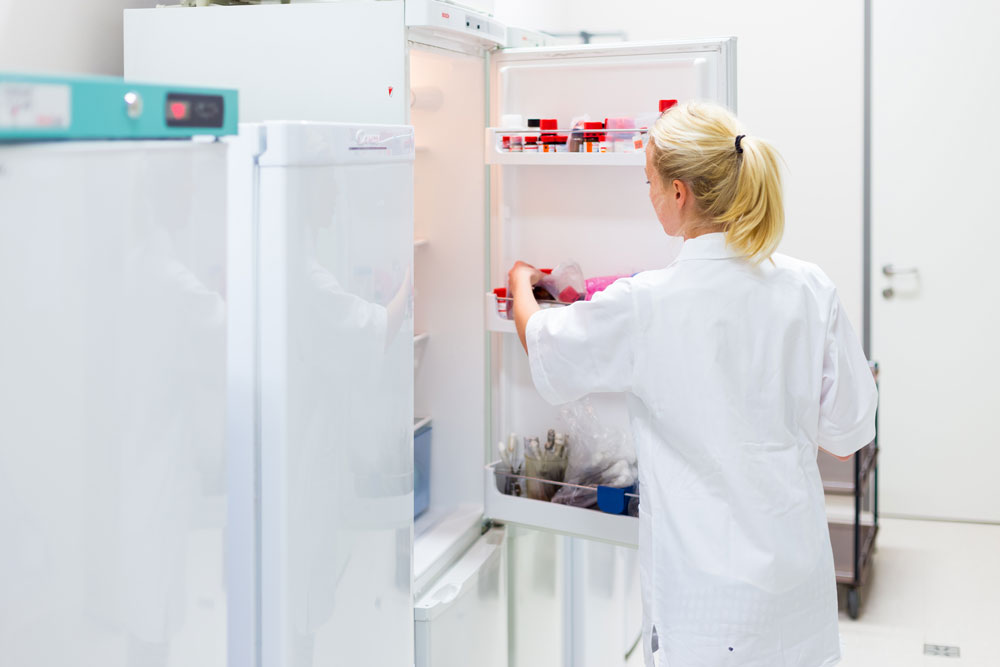Deviations, comments and complaints
This article is written from a Swedish perspective. Hopefully, it can inspire those interested from other countries.
Discrepancies in care should be investigated and remedied. The aim is to work with continuous improvements so that the same mistake does not occur multiple times. It is important to communicate about discrepancies and provide feedback. It is crucial that discrepancies are used for improvements. They should never be used to find scapegoats. The person who reports discrepancies must receive feedback in order for the operation to constantly improve.
 Foto: Mostphotos
Foto: MostphotosWhat is a deviation
A deviation is an event that has caused or could have caused harm to a resident. A deviation can also be a situation where someone behaves disrespectfully or where employees are at risk of injury in the operation. A good rule of thumb can be to write deviations on everything that could have caused discomfort or disturbances in the operation.
Complaints and comments from residents and relatives should also be reported. Deviations should always be written down so that they are documented. Also note the day, time, place and who were involved in connection with the event.
Deviation in healthcare
Deviations, negative events, and shortcomings should be investigated and the experiences should be returned to the operation by constantly developing and improving the routines. The purpose is, of course, to learn from the events that have occurred. Deviations are mostly related to whoever has been affected by the shortcomings. These are always documented in the journal. The assessment of the deviation and what measures have been taken should be documented. As a relative or customer in healthcare, you can always request access to the deviation. In larger organizations, you have the opportunity to access all deviations in de-identified form, for example via the intranet.
Deviations can be about many things. It can be about medication, fall accidents or other shortcomings in healthcare, shortcomings in care, treatment or that agreed measures have not been performed. It can be about other incidents from a working environment perspective, shortcomings in food handling or that goods deliveries have not worked.
Safety culture
The safety culture is crucial for how inclined the employees are to write deviations. If there is a repressive culture, there is a risk that employees will avoid it. The managers and licensed staff's view of deviations is fundamental. If everyone sees the deviations as an opportunity to learn and do better, the conditions for everyone contributing with documentation of deviations increase. There are even operations that reward the deviation of the month.
The person who writes a deviation and the others involved must receive feedback. In the case of more serious deviations, there are often reasons to feed back to the resident and relatives. It is important to regularly consider where the operation's weaknesses and risks are. In addition to deviation management, risk analyses therefore need to be made.
It can be good to regularly consider the deviations that have been and if there is any pattern that repeats itself. After serious events, the operation should make a thorough event analysis to understand why it happened and what can be done to prevent repetition.
Opinions and complaints
Relatives and the residents should be given information about whom they can turn to with complaints. Special forms for opinions and complaints should be available together with routines for how these are submitted. Complaints should be able to be submitted anonymously. A complaint that has come to the operation should be investigated in the same way as deviations. The complainant should receive a written response, unless the complaint has been submitted anonymously.
A relative who is not satisfied with the answer to a complaint can turn to the municipal board that pays for the place or the patient board in the relevant region. IVO (Inspection for Health and Social Care) investigates events where there are many or serious complaints and errors.
We repeatedly read about events in healthcare that have been reported. By being reported, the investigation can help to improve healthcare and that others are not affected. A well-conducted investigation gives the resident and relatives a chance to understand what has happened and what the unit is doing to prevent it from happening again.
Risk Analysis
Risk analysis is a tool that a nursing home must use in many situations. There are good manuals for how risk analyses should be conducted online. SKR provides a manual of good quality. Operations that have well-functioning risk analyses have fewer care injuries and other unwanted events. Risk analyses are made in different situations.
At the nursing home, many frail elderly people live. With risk analyses, the risk of accidents and injuries decreases. Often, the nursing home has a checklist with questions that should be reviewed in connection with the move-in.
Medical risk analyses mean that healthcare, for example, tries to anticipate and prevent the risk of malnutrition, pressure injuries, falls and poor oral health. Other medical risks are identified through drug reviews, testing and follow-up.
It happens that a resident has habits, diseases or behavior that the operation should be prepared to handle.
The work environment is another area where risk analyses are regularly made. If changes occur in the operation that can affect the working environment, there are good reasons to stop and think about what risks are associated with the change and what measures should be taken to avoid serious events.
Risk analyses can be made regarding shortcomings in care, for example before a summer vacation or in the event of staff shortages. It can also be about residents who have special needs for supervision or other events.
Healthcare providers should regularly analyze what risks exist in the surrounding community. The lack of crisis preparedness during the pandemic is an example where a lack of risk analysis meant that all of Sweden was without protective equipment.
At the nursing home, this type of external analysis is more about how the operation can handle interruptions in electricity, water or IT. What do you do if the food supplier does not deliver food one day or if the alarms stop working or are ringing all the time.
Risk analyses should be made before the event occurred to contribute to the preventive work.
Lex Maria
According to the Patient Safety Act, a report to the Health and Social Care Inspectorate (IVO) must be made in the event of events that have caused or could have caused a serious healthcare injury.
Lex Maria is about shortcomings in the part of healthcare that is health and medical care. Events that should lead to a report based on Lex Maria. Lex Maria came into being in the 1930s after four patients died when they accidentally got disinfectants injected instead of medication.
In all care, there is someone who is responsible for reporting. It can be a chief physician or medically responsible nurse who should investigate and report events to the Health and Social Care Inspectorate. The healthcare provider is obliged to report events that have caused or could have caused a serious healthcare injury.
If the resident or their relatives are dissatisfied with the care, they can complain. Complaints can be verbal or written. These should primarily be received and handled by the operation. It is possible to turn to the patient board in the region or directly to the Health and Social Care Inspectorate. IVO is increasingly restrictive which complaints they receive and investigate.
Lex Sarah
Anyone working in care that is conducted based on the Social Services Act or the Act on Support and Service for Persons with Certain Functional Impairments is obliged to report deficiencies in care. Lex Sarah came into being when the nursing assistant Sarah Wägnert blew the whistle on shortcomings at a residence in Solna.
It is regulated in the National Board of Health and Welfare's regulations and general advice on Lex Sarah. By deficiencies, which should be reported, both performed actions and actions that someone out of negligence or for other reasons has failed to perform and which entail or have entailed a threat to or have had consequences for individuals' life, safety, physical or mental health are meant.
It may become necessary for responsible managers to take immediate action if the situation requires it. There are then a number of requirements for the investigation that must take place and who should be informed.
There is good material in support of these investigations on IVO's website.
Reflection - Deviations, Opinions, and Complaints
Care Staff:
• Do you have good routines for deviations, opinions, complaints, and suggestions for improvement?
• Is there a good climate for the work with constant improvements?
• Do all colleagues know Lex Sarah and Lex Maria?
Manager, Nurse, Occupational Therapist, and Physiotherapist:
• Does the person who writes a deviation receive feedback on how the deviation has been handled and what has been done to avoid repetition?
• Is there a positive culture around deviation management?
• Do you carry out risk analyses and event analyses regularly in the operation?
Residents and Relatives:
• Do you know how you can submit opinions and complaints to the operation?
• Is there an open culture when it comes to improvement work?
• Have you ever made a complaint and did you then receive feedback from the operation?
Erland Olsson
Specialist nurse
Sofrosyne - Better care every day

Aktuellt i media
- 2026-02-02 04:00 19 Samhället utanför
- 2026-01-29 11:10 01 Kvalitet
- 2026-01-26 04:00 03 Ledarskap
- 2026-01-23 04:00 03 Ledarskap
- 2026-01-19 04:12 14 Läkemedelshantering
-
2026-01-08 04:00
13 Hygien
By changing work clothes at least once a day, the risk of spreading infection decreases.
info Foto: Mostphotos
Foto: Mostphotos






